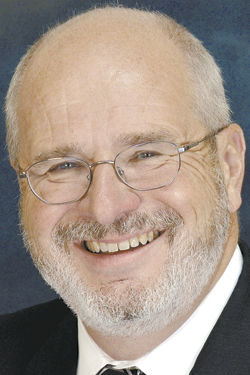By John Krull
Two American leaders — one from each political party — just offered a reminder of how mature adults behave.
U.S. Rep. Liz Cheney, R-Wyoming, delivered her lesson in three words.
“I was wrong,” Cheney said in an interview with CBS’s Lesley Stahl.
Stahl had asked the congresswoman about Cheney’s opposition to same-sex marriage. That opposition created a rift between Cheney and her sister, who is gay, married and has children.
With those three words — I was wrong — Cheney showed how grownups acknowledge mistakes. They don’t shillyshally. They don’t dodge. They don’t make excuses.
No, they own it.
The other example came from President Joe Biden.
Asked whether the disturbing incidents of mounted horseback riders herding desperate immigrants like livestock along our southern border was his responsibility, Biden was direct in his response.
“Of course I take responsibility. I’m president,” he said.
His answer may seem like a simple thing, but it isn’t. In a self-governing society such as ours, authority always is accompanied by accountability.
More to the point, to be an adult means assuming responsibility — both for one’s own actions and for those of the people who report to you.
Contrast Biden’s attitude with that of his predecessor, former President Donald Trump.
When Trump was confronted about how his administration had mishandled the rollout of testing procedures during the early days of the coronavirus pandemic, he snapped.
“I don’t take any responsibility at all,” Trump said.
If one sentence ever encapsulated why Trump was a single-term president, that was it.
Most presidents have been able to use crises on the scale of the pandemic to rally support to them. Challenging times allow most leaders to show that they are in charge.
That they are rocks in unsteady times.
Trump couldn’t do that. Most people sensed — accurately — that he was the antithesis of Harry Truman. With Trump, the buck always stopped somewhere else.
He hogged the credit for things that went right around him, but he never took responsibility for anything that went wrong.
That matters.
In both life and politics, mistakes are inevitable. We all falter and fail at times. That’s all right. The process of picking ourselves back up — of determining how and where we went wrong — is a great teacher.
People who cannot acknowledge mistakes are doomed to repeat them. They do not grow wiser as they grow older because they cannot learn from experience.
Purdue University President Mitch Daniels and I disagreed from time to time when he was Indiana’s governor.
One thing I always admired about him, though, was his willingness to acknowledge mistakes and misstatements and offer genuine apologies.
For those who do not know, a genuine apology does not contain the words “if” or “but.”
Saying “If I hurt your feelings, I’m sorry” isn’t an apology. It suggests that the person who took offense was too sensitive, not that what was said or done was unkind.
Similarly, “I’m sorry I made you mad, but…” also doesn’t qualify as an apology. What follows the “but” always is either an excuse for poor behavior or a fresh argument in an ongoing dispute.
When Mitch Daniels apologized for something, there never were any “ifs” or “buts.” He just acknowledged that he’d screwed up and said he was sorry.
He took responsibility for his actions. Like a grownup.
We live in a divided time. The conventional wisdom is that all our divisions are tribal —Republican vs. Democrat, rural vs. urban, white vs. Black.
Doubtless, these differences are fault lines.
But some of what eats at our nation also may spring from the fact that so many of us can’t ever acknowledge that our judgment has erred upon occasion or that, from time to time, we have done wrong. Because we cannot acknowledge our mistakes, we too often repeat them.
This is not a partisan or ideological issue.
Some Democrats get it. Others do not.
Some Republicans do. Others do not.
Some liberals do. Others do not.
Some conservatives do. Others do not.
The ones who get it are adults who can be entrusted with responsibility and authority. When they screw up, as all human beings do, they own up to their mistakes and try to make things right.
And the ones who don’t get it?
Well, not so much.
John Krull is director of Franklin College’s Pulliam School of Journalism and publisher of TheStatehouseFile.com, a news website powered by Franklin College journalism students. Send comments to [email protected].





